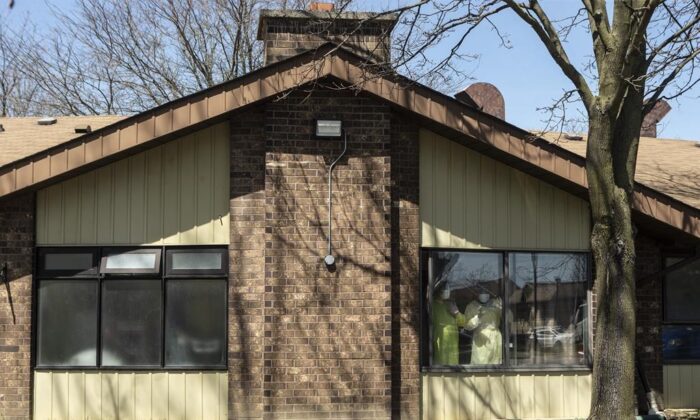FDA Bans 65 Chinese Mask Makers for Failing to Meet Filtration Standards
OTTAWA—For years, those living and working in nursing and retirement homes across the country have struggled as overburdened caregivers tried to maintain a basic level of care and dignity for aging and ailing Canadians.
It happened behind closed doors, said Carole Estabrooks, a professor in the faculty of nursing at the University of Alberta, with people typically only knowing the state of things if they or their loved ones moved into a long−term care facility.
Then the pandemic struck, and the deficiencies turned deadly.
“It didn’t just shine a light, it shone a cascade of halogen lights,” said Estabrooks, who has collected data on long−term care for 15 years.
“And the public’s horrified and they’re listening now,” she said. “But my God, what it took.”
A man in his 80s died of COVID−19 in early March after becoming infected with the novel coronavirus at the Lynn Valley Care Centre in North Vancouver, B.C. It was Canada’s first death related to the pandemic, and the beginning of a rash of outbreaks—and a crisis—in care homes across the country.
Deaths in long−term care facilities now account for more than 80 per cent of the roughly 4,500 deaths from COVID−19 in Canada.
“I call it benign neglect,” said Estabrooks, the scientific director for the university’s Translating Research in Elder Care, a program aimed at improving the system.
“Nobody set out to plan a system that will hurt older adults.”
That is what has happened, though, she said, and while policy−makers and politicians have vowed to find a fix, the path to change remains unclear.
While the data suggests long−term care homes across the globe have suffered unduly from COVID−19, residents in Canada’s system seem to be suffering more than others.
International data is difficult to compare, though an analysis by researchers at the University of Ottawa, University of British Columbia, and the London School of Economics have awarded Canada the troubling distinction of having the highest proportion of COVID−19 deaths related to care homes of the 14 countries studied as of April 26.
A fundamental resdesign is needed, Estabrooks said, but it is an incredibly complex task. Long−term care is a provincial jurisdiction, and it differs from province to province.
Focus News: No Easy Fix for Long-Term Care Home Problems Highlighted by COVID-19
China Needs to Develop More Nukes to Curb the US: Editor of Chinese State-Run Newspaper
